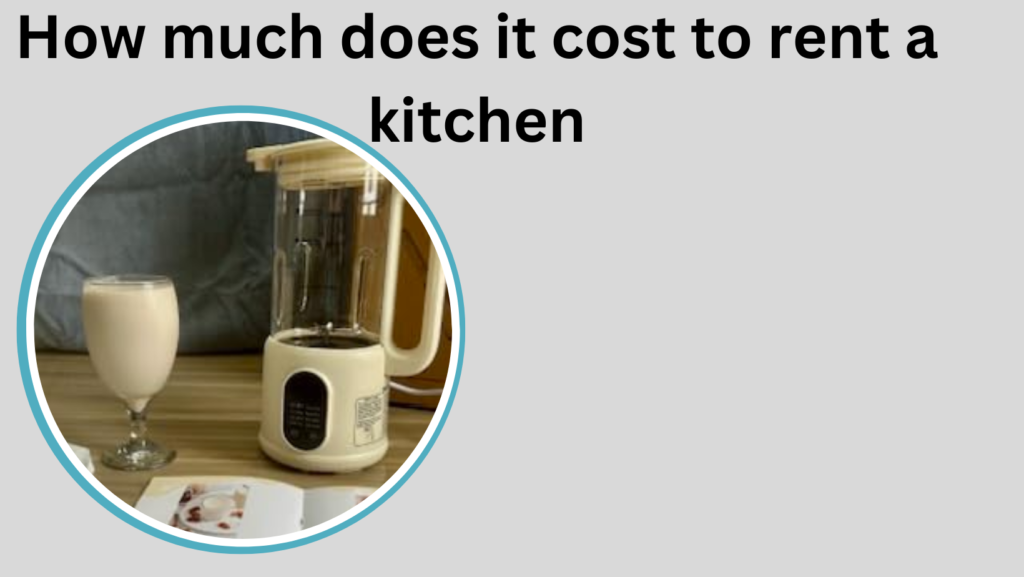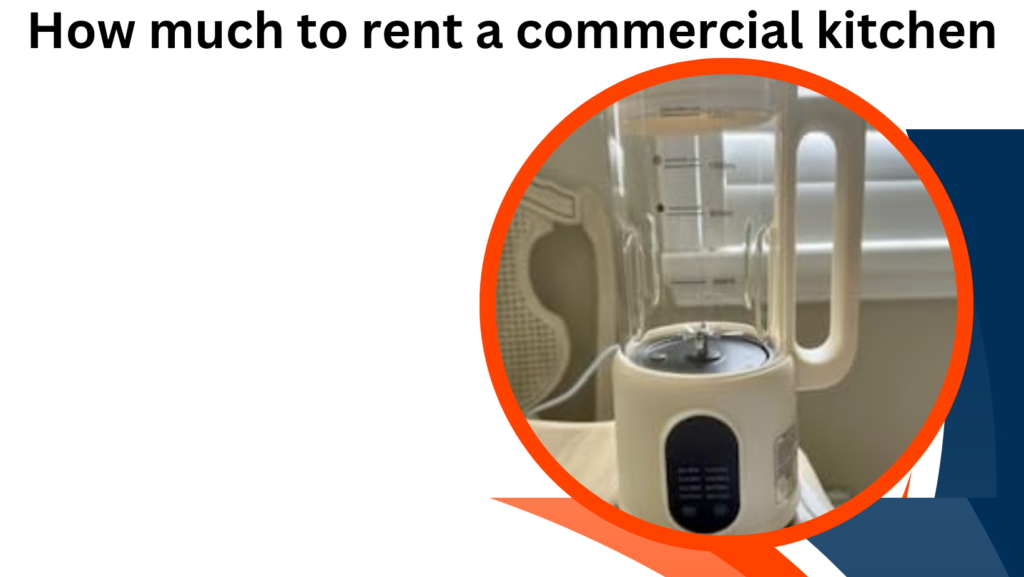How much does it cost to rent a kitchen? If you’re starting a food business or need extra space, finding the right commercial kitchen matters. I’ve rented kitchens before, and trust me, prices vary a lot! Some are budget-friendly, while others come with surprise costs. In this guide, I’ll break down commercial kitchen prices, what affects them, and how to get the best deal. Let’s get started!
Understanding Different Types of Commercial Kitchens
Renting a commercial kitchen can feel confusing. There are so many options! When I started, I had no idea what kind I needed. Shared, private, incubator, catering—what’s the difference? Let’s break it down.
What Is a Commercial Kitchen?
A commercial kitchen is a professional space for food prep. Unlike home kitchens, they meet strict safety rules. They’re perfect for catering, baking, or meal prep businesses. Plus, they have big ovens, lots of counter space, and all the necessary tools.
Types of Commercial Kitchens Available for Rent
Not all kitchens are the same. The best one for you depends on your business size and budget. Here’s a quick guide:
1. Shared Commercial Kitchens
Think of this as a coworking space but for food businesses. You rent a spot and share it with other chefs. It’s great if you need a low-cost option.
Best for: Small businesses, food trucks, and startups.
Pros:
- Cheap hourly rates
- Pro equipment
- Meet other food entrepreneurs
Cons:
- Need to book time in advance
- Can get crowded
- Less privacy

I used a shared kitchen for my catering business. It saved me money, but I sometimes had to wait for equipment. Still, it was a great starting point!
2. Private Commercial Kitchens
This is your own space—no sharing! You get full control, but it costs more.
Best for: Growing businesses, catering, and meal services.
Pros:
- Full access, anytime
- No waiting for equipment
- More storage
Cons:
- Expensive
- Long-term lease required
A friend got a private kitchen when her bakery grew. She loved having 24/7 access, but the higher rent was a big jump.
3. Incubator Kitchens
These kitchens help new food businesses. They offer kitchen space, plus mentorship and resources.
Best for: Start-ups and small food brands.
Pros:
- Low cost
- Business support
- Great networking
Cons:
- Limited availability
- May have time limits
These spaces feel like startup hubs but for food! If you’re new, they give you a big boost.
4. Catering Kitchens
These kitchens are built for big food orders. They have huge ovens, fridges, and prep space.
Best for: Catering companies and large meal production.
Pros:
- Designed for bulk cooking
- Tons of space
- High-end equipment
Cons:
- Expensive for small businesses
- Not always available short-term
I once helped cater a wedding from a catering kitchen. The extra space made everything smoother. But if you cook in small batches, it’s probably not the best fit.
Which Kitchen Type Is Right for You?
Your best choice depends on your budget and how often you need the kitchen. Shared and incubator kitchens are great for beginners. Private kitchens work best for growing businesses. Catering kitchens are perfect for big events.
Always tour the kitchen first. Check the equipment. Read the contract. The right kitchen can make a huge difference for your business!
Factors That Affect the Cost of Renting a Commercial Kitchen
Renting a kitchen isn’t just about finding space—it’s about finding the right space at the right price. Costs can change a lot based on a few key things. Let’s break them down.
1. Location: Big City vs. Small Town
Where you rent matters. Kitchens in big cities like New York or Los Angeles cost more than those in smaller towns. It’s all about demand and rent prices.
2. Kitchen Size & Space
Bigger kitchens cost more. If you only need a small prep area, you’ll pay less. But if you need lots of ovens, fridges, and counter space, expect higher rates.

3. Equipment & Extras
Some kitchens come fully stocked. Others? Just a prep table and a sink. The more tools and storage you need, the more you’ll pay.
4. Rental Time: Hourly, Daily, or Monthly?
Short rentals are easy but pricey. Long-term rentals cost less per hour but need a commitment.
5. Extra Fees (Cleaning, Storage, Etc.)
Some places offer fridge storage, deep cleaning, or even trash removal. But they may charge extra!
How Much to Rent a Commercial Kitchen: Price Range
So, how much does it cost to rent a commercial kitchen? Short answer: It depends! Prices change based on kitchen type, location, and what’s included. Let’s break it down.
Shared Commercial Kitchens: Cheap but Busy
If you need an affordable option, shared kitchens work well. They’re like co-working spaces but for food businesses. You pay hourly and share equipment.
💰 Cost: $15–$50 per hour
📍 Example: In small towns, rates start at $10/hour. In big cities, they go up to $40–$50/hour.
🔹 My Experience: I paid $25/hour for a shared kitchen. It saved money, but I had to book time early. Sometimes, I waited for equipment. If that’s okay, this is a great way to start.
Private Commercial Kitchens: More Control, Higher Cost
A private kitchen means no sharing! You get full access, but it costs more.
💰 Cost: $2,000–$10,000+ per month (or $50–$150 per hour for short-term use)
📍 Example: In rural areas, you might pay $2,000/month. In cities like New York, it can be $6,000 or more.
🔹 Real-World Insight: My friend got a private kitchen for her bakery. She paid $3,500/month in a mid-sized city. It was expensive, but she could work anytime.
Incubator Kitchens: Cheap with Extra Perks
Incubator kitchens help food startups. They offer kitchen space plus mentorship and networking.
💰 Cost: $15–$40 per hour or monthly plans
📍 Example: Some incubators charge $300–$1,000/month based on usage.
🔹 Worth It? If you’re starting out, incubators are great! But spots fill up fast, so apply early.
Catering Kitchens: Best for Large Batches
Catering kitchens have big ovens, huge fridges, and lots of prep space. They’re made for large-scale cooking.
💰 Cost: $30–$75 per hour or $3,000–$12,000/month
📍 Example: In a small town, you might pay $35/hour. In cities, it’s closer to $75/hour.
🔹 My Experience: I worked in a catering kitchen for a wedding. It had all the space we needed! But at $60/hour, it was pricey. Great for big orders, not for small-scale cooking.
City vs. Rural Costs: Big Difference
Location changes rental prices a lot. Here’s a quick comparison:
- Big Cities (NYC, LA, Chicago): High demand means higher prices. Expect $40–$75/hour for shared kitchens and $5,000+/month for private ones.
- Mid-Sized Cities (Austin, Denver, Atlanta): Prices drop a little. Shared kitchens are $25–$50/hour, private ones $2,500–$5,000/month.
- Small Towns & Rural Areas: Much cheaper! Shared kitchens cost $10–$30/hour, private kitchens $1,500–$3,000/month.
Hidden Costs to Watch Out for When Renting a Commercial Kitchen
Renting a kitchen isn’t just about the price per hour or month. There are extra costs that can sneak up on you! I learned this the hard way when I thought I got a great deal—until the surprise fees hit. Let’s go over what to look out for.
1. Security Deposits: The Upfront Cost
Before you start cooking, most kitchens ask for a deposit. This can be a few hundred or even a few thousand dollars.
2. Insurance: A Must-Have Expense
Many kitchens need you to have insurance. If you don’t have it, you’ll need to buy a policy. This can cost anywhere from $300 to $1,500 per year.
3. Utility & Maintenance Fees: The Monthly Extras
Some kitchens include utilities like electricity and water in the rent. Others charge you separately. Big ovens and fridges use a lot of power, so bills can add up. Some places also charge extra for maintenance.
4. Equipment & Supplies: What’s Really Included?
Some kitchens provide everything. Others? Just a sink and a counter. You might need to bring or rent tools like mixers, trays, or storage bins.
5. Short-Term vs. Long-Term Rentals: Which Costs Less?
Hourly rentals seem cheaper at first, but if you rent often, it can add up. Monthly rentals cost more upfront but have lower hourly rates.
Personal Insights and Experiences
Renting a commercial kitchen can be a great move for your food business, but it can be tricky at first. I’ve had my share of ups and downs. Here’s what I’ve learned, plus some tips for anyone renting a kitchen for the first time.
Starting with a Shared Kitchen
When I first started, I rented a shared kitchen. It seemed like a good deal: low rates, access to professional equipment, and meeting other food entrepreneurs. But, I quickly found that it wasn’t as easy as I thought. I had to book time in advance, and sometimes the kitchen got crowded. Waiting for equipment wasn’t fun, and it made things slower than expected.
Moving to a Private Kitchen
After using shared kitchens for a while, I decided to rent a private kitchen. It was a big step. The rent was higher, but I had full control. I could cook whenever I needed to, and there was no waiting for equipment. But I also learned that extra costs, like utilities and deposits, added up quickly.
Lessons Learned
One of my biggest lessons was to always check the fine print. I rented a cheap kitchen once, but I ended up having to buy extra tools and supplies. That added up fast.
Advice for First-Time Renters
If it’s your first time renting, start small and be flexible. It’s easy to want a perfect kitchen, but the best space is one that fits your current needs. Try renting by the hour or day at first to see if it works for you. Once you know what you need, then think about a longer rental.
Watch Out for Hidden Costs
When I first rented, I didn’t realize all the extra fees. Cleaning costs, insurance, and security deposits all added up. Make sure you get a clear breakdown of all the fees before signing a contract.
Frequently Asked Questions (FAQs)
What is the average cost to rent a commercial kitchen?
The price to rent a commercial kitchen depends on its size, location, and what’s included. Shared kitchens cost around $15–$50 per hour. Private kitchens are usually $50–$150 per hour. Monthly rates for private kitchens range from $2,000 to $10,000 or more. The exact price depends on where the kitchen is and what facilities are available.
Are there any extra costs I should know about?
Yes, there are extra costs to keep in mind. Ask about security deposits, insurance, utilities, and maintenance fees. Some kitchens also charge extra for services like storage, cleaning, or trash removal. These costs can add up, so be sure to check the full list of charges before you sign the lease.
How can I find a commercial kitchen for rent in my area?
Finding a commercial kitchen is easier than you think! Start by looking online on websites like KitchenShare or Peerspace. You can also ask other food business owners or check with your local health department. It’s a good idea to visit the kitchen in person and inspect the equipment before you decide.
Can I rent a commercial kitchen for a short time?
Yes! Many kitchens offer short-term rentals, perfect for one-time events or catering jobs. These are often rented by the hour or day, but they can cost more than long-term rentals. If you only need a kitchen for a short period, this is a great option. Just remember to book ahead, as these kitchens can fill up fast.
Conclusion
So, that’s it! You now know what to expect when renting a commercial kitchen. Whether you’re just starting out or have been in the food business for a while, there’s a kitchen that’s right for you. From shared spaces to private kitchens, each option fits different needs and budgets.
But here’s the key: don’t rush your decision. Think about your location, the equipment you need, and how often you’ll use the space. Price matters, but the hidden costs can catch you off guard. Things like deposits, insurance, and extra fees add up. Trust me, I learned that lesson the hard way!
My tip? Start with something flexible. If you’re new, a shared kitchen or incubator space is great. It’s affordable and perfect for trying things out. As your business grows, consider moving to a private kitchen or something larger. Just remember, what seems like a good deal might have hidden costs, so always read the fine print and ask plenty of questions.

I’m a writer and culinary expert with over 10 years of experience in the kitchen. As a graduate of the Institute of Culinary Education and a passionate home chef, I created KitchenBreez.com to share my knowledge of kitchen techniques, cooking tips, and the best kitchen gadgets. Whether you’re a seasoned cook or just starting, my goal is to help you make your time in the kitchen more efficient and enjoyable.
